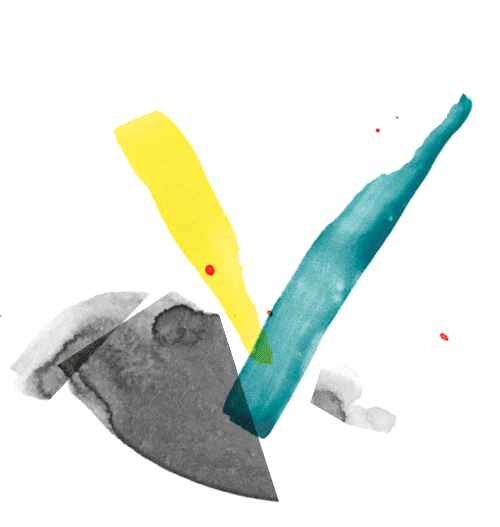

Sign up for our newsletters. You can change the settings or unsubscribe at any time.
Thank you for your subscription. We have sent you an e-mail with a confirmation link.


exp. 1
exp. 2
exp. 3

Delaine Le Bas
Venue: daadgalerie
Delaine Le Bas
Born 1965 in Worthing, UK – lives and works in Worthing
The verb “gyp,” a derivation of “gypsy,” means to cheat or swindle. Its derogatory implications reflect a reality in which nomadic existence is seen as a threat to the social order and its institutions. Nurtured by the experience and vocabulary of the Roma, Delaine Le Bas (with her partner Damian Le Bas, who died in 2017) has engaged in a lifelong practice of artistic resistance. Her work deconstructs the norms, histories, and language that have historically been instrumentalized to exclude and criminalize Roma communities in the UK and beyond. Found objects, drawings, textiles, photographs, sound, performances, and film footage are melded together in Le Bas’ environments, which draw from her personal history, life experience, and dreamspace.
For the new work commissioned by the 11th Berlin Biennial, Le Bas produces a new identity and a “living sculpture” that borrows from the past to serve the future in the fight against oppression: the figure of St Sara Kali George. This protector of undetermined sexuality merges two patron saints of the Roma people, Saint George and Sara Kali—figures that resonate across disparate geographies extending from Afro-Brazilian traditions to Hindu narratives. This new, myth-busting entity is empowered by centuries of living knowledge that has survived the categorizing grid of the capitalist everyday. On view are St Sara Kali George costumes. Made from traditional and nontraditional components, they deconstruct histories and stereotypes, and embody a new history, a new body, a new being. Le Bas has described clothing as “an activator”—especially when it does not fit the status quo—and the identity of St Sara Kali George as “armor.” Her work inspires us to claim and enact these kinds of protective powers.
Övül Ö. Durmusoglu
Download the St Sara Kali George here. A second zine will be published with the works that will be shown at Worthing Museum & Art Gallery, Worthing, West Sussex UK in 2021.
Animation Laszlo Farkas
Soundscape Justin Langlands
Grupo Experimental de Cine en acción
Gabriel Peluffo
Drawing
COVID-19 VIDEOS
Carlos Motta
Video
Freiheit für Chile!
Anonymous
Photo album
I: Junto a las curadoras de la XI Berlin Biennale for Contemporary Art
Renata Cervetto, Lisette Lagnado
Conversation
II: La Solidaridad va Más Allá de un Concepto. Entre las Curadoras de la XI Berlin Biennale
Lisette Lagnado, Agustín Pérez Rubio
Conversation
Umbilical Cord Amulet
McCord Museum
Object
By using this website you agree to the use of cookies in accordance with our data privacy policy.

Delaine Le Bas
Venue: daadgalerie
Delaine Le Bas
Born 1965 in Worthing, UK – lives and works in Worthing
The verb “gyp,” a derivation of “gypsy,” means to cheat or swindle. Its derogatory implications reflect a reality in which nomadic existence is seen as a threat to the social order and its institutions. Nurtured by the experience and vocabulary of the Roma, Delaine Le Bas (with her partner Damian Le Bas, who died in 2017) has engaged in a lifelong practice of artistic resistance. Her work deconstructs the norms, histories, and language that have historically been instrumentalized to exclude and criminalize Roma communities in the UK and beyond. Found objects, drawings, textiles, photographs, sound, performances, and film footage are melded together in Le Bas’ environments, which draw from her personal history, life experience, and dreamspace.
For the new work commissioned by the 11th Berlin Biennial, Le Bas produces a new identity and a “living sculpture” that borrows from the past to serve the future in the fight against oppression: the figure of St Sara Kali George. This protector of undetermined sexuality merges two patron saints of the Roma people, Saint George and Sara Kali—figures that resonate across disparate geographies extending from Afro-Brazilian traditions to Hindu narratives. This new, myth-busting entity is empowered by centuries of living knowledge that has survived the categorizing grid of the capitalist everyday. On view are St Sara Kali George costumes. Made from traditional and nontraditional components, they deconstruct histories and stereotypes, and embody a new history, a new body, a new being. Le Bas has described clothing as “an activator”—especially when it does not fit the status quo—and the identity of St Sara Kali George as “armor.” Her work inspires us to claim and enact these kinds of protective powers.
Övül Ö. Durmusoglu
Download the St Sara Kali George here. A second zine will be published with the works that will be shown at Worthing Museum & Art Gallery, Worthing, West Sussex UK in 2021.
Animation Laszlo Farkas
Soundscape Justin Langlands
Queer Ancient Ways: A Decolonial Exploration
Zairong Xiang
Monograph
Invitation to the Species: Cecilia Vicuña
Tamaas / Cecilia Vicuña
Podcast
Struggle as Culture: The Museum of Solidarity, 1971–73
María Berríos
Essay
Freiheit für Chile!
Anonymous
Photo album
Memorial to the Sinti and Roma Victims of National Socialism
Dani Karavan
Memorial
Glossary of Common Knowledge
L’Internationale Online
Glossary
By using this website you agree to the use of cookies in accordance with our data privacy policy.

Delaine Le Bas
Venue: daadgalerie
Delaine Le Bas
Born 1965 in Worthing, UK – lives and works in Worthing
The verb “gyp,” a derivation of “gypsy,” means to cheat or swindle. Its derogatory implications reflect a reality in which nomadic existence is seen as a threat to the social order and its institutions. Nurtured by the experience and vocabulary of the Roma, Delaine Le Bas (with her partner Damian Le Bas, who died in 2017) has engaged in a lifelong practice of artistic resistance. Her work deconstructs the norms, histories, and language that have historically been instrumentalized to exclude and criminalize Roma communities in the UK and beyond. Found objects, drawings, textiles, photographs, sound, performances, and film footage are melded together in Le Bas’ environments, which draw from her personal history, life experience, and dreamspace.
For the new work commissioned by the 11th Berlin Biennial, Le Bas produces a new identity and a “living sculpture” that borrows from the past to serve the future in the fight against oppression: the figure of St Sara Kali George. This protector of undetermined sexuality merges two patron saints of the Roma people, Saint George and Sara Kali—figures that resonate across disparate geographies extending from Afro-Brazilian traditions to Hindu narratives. This new, myth-busting entity is empowered by centuries of living knowledge that has survived the categorizing grid of the capitalist everyday. On view are St Sara Kali George costumes. Made from traditional and nontraditional components, they deconstruct histories and stereotypes, and embody a new history, a new body, a new being. Le Bas has described clothing as “an activator”—especially when it does not fit the status quo—and the identity of St Sara Kali George as “armor.” Her work inspires us to claim and enact these kinds of protective powers.
Övül Ö. Durmusoglu
Download the St Sara Kali George here. A second zine will be published with the works that will be shown at Worthing Museum & Art Gallery, Worthing, West Sussex UK in 2021.
Animation Laszlo Farkas
Soundscape Justin Langlands
„Klaus Eckschen: Hörspiel“
Die Remise
Hörspiel
Solidarity and Storytelling. Rumors against Enclosure
María Berríos
Essay
#fight4rojava
Graffiti
Flávio de Carvalho: Fazenda Capuava
Archive of Lisette Lagnado
Photographs
Expresiones de la locura: el arte de los enfermos mentales
Hans Prinzhorn
Monograph
Hatred Among Us
Lisette Lagnado
Essay
By using this website you agree to the use of cookies in accordance with our data privacy policy.

Delaine Le Bas
Venue: daadgalerie
Delaine Le Bas
Born 1965 in Worthing, UK – lives and works in Worthing
The verb “gyp,” a derivation of “gypsy,” means to cheat or swindle. Its derogatory implications reflect a reality in which nomadic existence is seen as a threat to the social order and its institutions. Nurtured by the experience and vocabulary of the Roma, Delaine Le Bas (with her partner Damian Le Bas, who died in 2017) has engaged in a lifelong practice of artistic resistance. Her work deconstructs the norms, histories, and language that have historically been instrumentalized to exclude and criminalize Roma communities in the UK and beyond. Found objects, drawings, textiles, photographs, sound, performances, and film footage are melded together in Le Bas’ environments, which draw from her personal history, life experience, and dreamspace.
For the new work commissioned by the 11th Berlin Biennial, Le Bas produces a new identity and a “living sculpture” that borrows from the past to serve the future in the fight against oppression: the figure of St Sara Kali George. This protector of undetermined sexuality merges two patron saints of the Roma people, Saint George and Sara Kali—figures that resonate across disparate geographies extending from Afro-Brazilian traditions to Hindu narratives. This new, myth-busting entity is empowered by centuries of living knowledge that has survived the categorizing grid of the capitalist everyday. On view are St Sara Kali George costumes. Made from traditional and nontraditional components, they deconstruct histories and stereotypes, and embody a new history, a new body, a new being. Le Bas has described clothing as “an activator”—especially when it does not fit the status quo—and the identity of St Sara Kali George as “armor.” Her work inspires us to claim and enact these kinds of protective powers.
Övül Ö. Durmusoglu
Download the St Sara Kali George here. A second zine will be published with the works that will be shown at Worthing Museum & Art Gallery, Worthing, West Sussex UK in 2021.
Animation Laszlo Farkas
Soundscape Justin Langlands
O Bailado do Deus Morto
Flávio de Carvalho
Play
Fragments of the Artist’s Diary, Berlin 11.2019–1.2020
Virginia de Medeiros
Diary
III: La familia son quiénes se alegran con nuestros actos diarios. Detrás de las curadoras de la XI
María Berríos, Agustín Pérez Rubio
Conversation
A World Without Bones
Agustín Pérez Rubio
Weaving Solidarity
Renata Cervetto and Duygu Örs
Q&A
Struggle as Culture: The Museum of Solidarity, 1971–73
María Berríos
Essay
By using this website you agree to the use of cookies in accordance with our data privacy policy.
By using this website you agree to the use of cookies in accordance with our data privacy policy.




